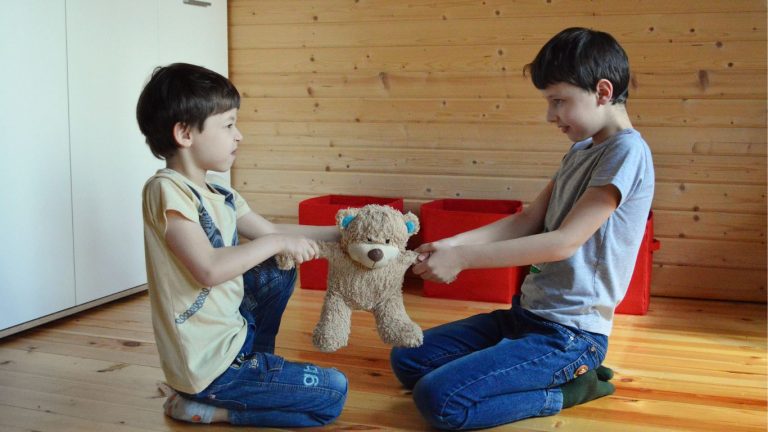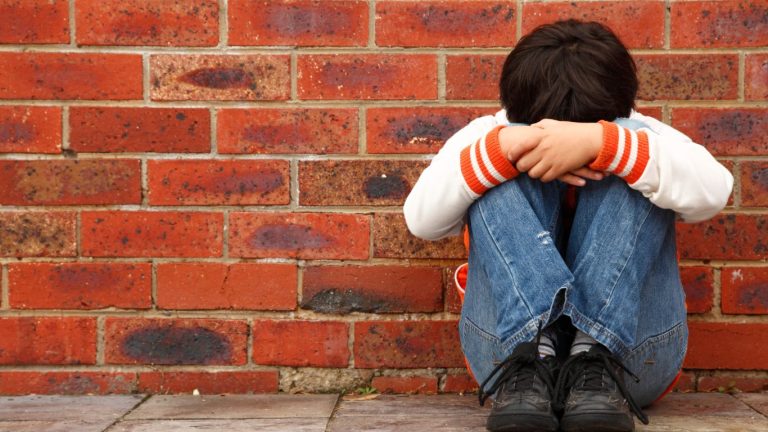Thank you to all the lovely people who have sent me “real” questions about their daily lives as parents. I will answer them in the order they arrived.
Starting right with the little things
| Dear Diane, I would love to hear of constructive ways to manage the little things that 1-2 year olds do. Things like eating woes, the very first tantrums where they are too young for TimeOut, how to keep them still enough for nappy changes/ dressing, how to stop them putting food on the floor, sleeping issues at night and during naps, etc etc.Love your work 🙂
Morsellini |
Dear Morsellini,
When we are confronted with a whole lot of small but irritating behaviour issues, our problem is often “Where to start?” Instead of seeing each issue as separate, I find it easiest to think of them all stemming from our child already knowing what is acceptable and what is unacceptable behaviour, but choosing to do as they please. Which brings us to our first question.
When is our child old enough for “discipline”?
Our child shows us that they know when they are doing something wrong once they give us “the look”. This is the cheeky glance that they give us just as they reach out to touch something they know full well is out of bounds. It is the look that says, “I know I am not supposed to do this, but I am so adorable, surely you won’t mind this time.”
We usually get our first “look” somewhere between nine and fifteen months.
Unfortunately for them, they have given away their game plan and they have shown us that are doing something inappropriate knowingly and willingly. It is time for us to start setting boundaries.
What can we do?
I favour a brief Time Out to show our child that we will not allow the behaviour to proceed. Let’s talk about changing our toddler’s nappy. This is a good example because, if it is a struggle, it is something we struggle with several times a day.
You begin to lie your toddler down to be changed and he starts squirming. (Wait long enough for the first squirm so that he still has the nappy on!) Immediately, scoop him into his cot, say firmly, “You know that you need to keep still while Mummy changes you, “and walk out of the room.
How long should I stay away?
About fifteen seconds should be enough to make your point. Long enough for your toddler to take a sharp intake of breath but not long enough for him to burst into tears.
Stroll in holding out your arms saying, “Are you ready to lie still for Mummy?” If he comes “softly” into your arms and allows you to lie him down to be changed, you have taught him that you mean business.
If he laughs at you, or ignores you or yells at you, he is not yet ready to behave. Turn on your heel and leave – and try again a couple of minutes later. Be sure that you don’t start taking off his nappy till he is ready to lie still.
The same strategy is useful for whenever you have to change a toddler’s clothes, or put their shoes on or get them seated in their highchair. They muck you about…straight to their cot (or any other safe and contained spot that you use as a Time Out) till they are ready to behave.
Throwing food
This is another one of those behaviours that, the sooner you sort it out, the more pleasant parenting life will be. Start with two thoughts in mind.
a. I will only out on my child’s plate as much as I am prepared to pick up off the floor.
b. I will never tolerate food being thrown without scooping my child into a Time Out spot.
Often children will start throwing food when they have had enough to eat. Hence “point a.” You take charge of a larger plate with the meal on it. Put out about four or five pieces of food. When that is eaten and your child wants more, put the next round on his plate.
If he has had enough, let him get down, but keep the food for a while in case he returns for it. Let the amount that he eats be appetite-driven.
Daytime and night time behaviour
If our child behaves badly during waking hours, there is no reason to suppose that they will behave well just because it is “Sleeping time.” Many sleep issues can be solved by insisting on good behaviour.
More information on Time Out
| Dear Diane I absolutely agree with morsellini! My 18mo is an absolute gem, but also out for any attention she can get so standing on chairs, throwing food around the room and going into the fridge are current favourites! I have tried to get her to sit on a chair for a minute for time out, but she loves her chairs so thinks this is a cool game! I also struggle to leave the room when she’s playing (even to go toilet). She’s always been happy playing on her own, but gets really upset when I go more than a couple of metres away. FYI, she’s not a clingy little girl and is very happy with strangers and other kids, is boisterous and will do anything for attention!
Thanks heaps, |
Dear Hammum,
We all get stuck when we regard each behaviour as a separate behaviour that requires a different way of being handled. It is so much easier when we class them all as “unacceptable behaviour” or even the more politically incorrect term “bad behaviour”
Don’t allow bad behaviour
If you don’t want your child getting into the fridge, you need to do two things; stay very aware of when she is near and opening the fridge and respond immediately.
Growling is a useful means of teaching our children that they shouldn’t be doing something. After about ten growls (The first ten times our child does a particular behaviour), they have understood that it is unacceptable behaviour and doing it again is sheer disobedience. If we keep on growling, or nagging or whining, our children rapidly learn that “as long as I am not bothered by Mum’s growling, I can keep on doing that.”
We need to ACT. Every time your little one opens the fridge, stands on chairs or throws food, scoop her off to a good Time Out spot and only be prepared to release her when she is ready to be cooperative.
A good Time Out spot
If you can get a Time Out chair to work easily, it is a good way of doing Time Out. If you find it a struggle to keep your child there, find a spot that your child cannot escape from. It makes your life so much easier and the Time Out so much more effective.
Don’t leave me, Mummy
Many of our children will go through phases where, even though they are confident in lots of public places, they will suddenly loose their cool when they look around and discover that Mum isn’t there. (This can even happen in their own home when Mum has told them when she is going.) It is a phase that they go through and the simplest way – even though it is a pain – is to go with the phase rather than explain or resist.
Every time you are leaving the room – even if it is only fro two seconds to put some socks in the next room – go over to your child and say to her “I am just goin to the next room to put the socks away. Do you want to stay here of do you want to come with me?”
The first ten times you can guarantee your child will come with you, but after that, she will probably look up and say, “You can go Mum. I’ll be fine.”
By respecting her feelings of mild separation anxiety, and by enabling her to trust that you won’t leave without notification and the opportunity to come with you, you enable her to get over anxious feelings really fast.
Sometimes it is “Yes” and sometimes it is ‘NO”
| Hi there Diane As per the above, I would love to hear of new ways to help rain-loving children, on any given particularly wet weekend, when a 4 year old girl insists on going out to play and not just watch the heavy rain, but wants to be IN it as well. Very determined little girl, adores rainy days, outside! Not wanting to encourage this however, trying to keep her mind on INSIDE activities, very hard. I would appreciate ANY advice on this one.
Thanks Susan |
Dear Susan
It is much simpler when a particular behaviour is either appropriate or inappropriate every time. It gets much more difficult of the answer is sometimes “Yes” and sometimes “No.”
The trick is for you to make the decision based on your parenting wishes and not to be persuaded differently, whether by winning smile or pouting face or even a full-blown tantrum.
Good times to go outside on rainy days are before getting dressed or before bath-time. Either way, you, the parent, only have to have one change of clothing. Alternatively, any time is a good time if you have the energy to deal with the “drying up.” It is unlikely to be more than once or twice a day.
Just make your position crystal clear:
“You can have ten minutes out in the rain and then you get dressed for the day.”
“After running around in the rain, it will be time for a warm bath and pyjamas”
“It looks like a rainy day all day. You can have one turn before breakfast and another after your lunchtime rest.”
The tough bit is sticking to what you have said. Give up on convincing, persuading or yelling. If she nags, just pop her in her room till she has stopped.
Be smart. Make sure you have the front and back door locked so there is no easy escape!
Bedtime Success
| Hi Diane, I just wanted to give you my sincere thanks for your book – “Of course I love you…NOW GO TO YOUR ROOM!” I have used lots of your strategies with our son from about 18 months on and they really do work – the latest problem was with bedtime dramas and we were getting rather hot under the collar with Mr 3 getting in and out of bed, so I re-read your book again and started using the positive re-enforcement you suggest by leaving the door open (even though he always liked it shut) and going in to congratulate him on staying in his bed ever few mins and then extending it out – he now stays happily in his bed awaiting Mum or Dad’s praise and is SO much happier (as are we) – your strategies are so down do earth and easy to implement . I just really wanted to take the time to say thank-you :o)Happy parents |
Dear Happy Parents
Thank you so much for such wonderful feedback and “Well done” on picking a strategy and following through till it worked.






Hi Diane, I am after some advice about my 4yo sons behaviour. He has some big issues with sharing and ‘ownership’ of objects. He is generally unwilling to share his toys with others and needs a lot of coaching with this. I know that a degree of this is normal for this age, however I feel that this behaviour is actually getting worse. I have had some feedback from kindi that he is being very demanding and taking things off other children and claiming them as his own (including other children’s craft/ drawings). He even bit another child today at… Read more »
Hi Diane I’m really desperate for some help with my nearly four year old girl. My husband and I are completely worn out with her constant whinging, whining, demands, tantrums and the list goes on. Our day starts with whinging and whining from go to woe. She whinges when she is getting dressed in the morning, when Dad makes her breakfast and she wants Mum to do it, if her now 1 year old brother is getting any form of attention and she is not, she whinges and cries when its time to go to daycare (and is fine by… Read more »
Hi Renee,
I sympathise – I also have a 4 year old and they seem to specialise in whining! I’ve just posted a new article from Diane that might help: http://www.kiwifamilies.co.nz/2013/09/dealing-strong-willed-child/ Let me know if you have any questions that you’d like me to pass on to Diane 🙂
Cheers,
Rochelle
Thank you Rochelle.
This is a great article. Very helpful. We will certainly give this a go.
Jay
Hope it helps!
Hi Stacey, thanks for asking about this, biting is a common thing for young children to do. It is considered part of communication, usually a display of frustration. The frustration can be a part of teething/overexcited/overwhelmed etc… (including feelings of love) I would suggest that if it is happening often then time out is not really going to work, unless you think he really could do with a little time out in a safe space. I would suggest an immediate and firm, clear “OUCH, that hurt mummy, that is not nice/ok” and put the child down and walk away for… Read more »
Good morning, I have an 18 month old boy who has recently started to bite. He bites to take toys of other children but he can also bite for no reason at all. We can be having a lovely time together and then he will just bite me. When he bites, I strongly say “you know you are not allowed to bite” I put him in time out in his room, however I am unsure how long I should leave him there for. If he is crying and up-set I generally leave him there for just over a minute (would you suggest longer?)… Read more »